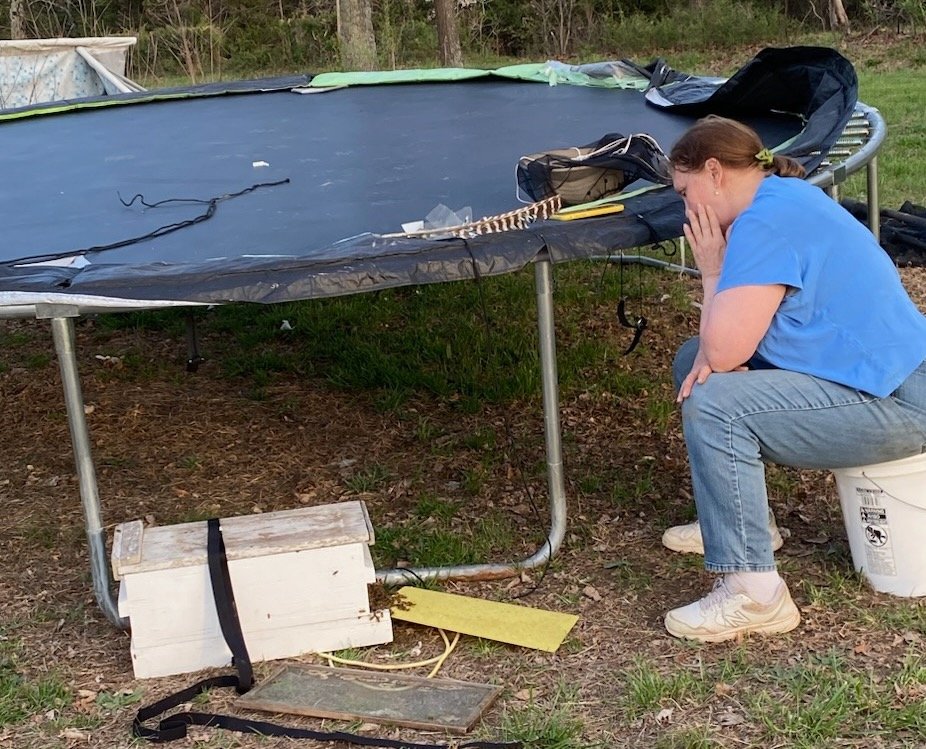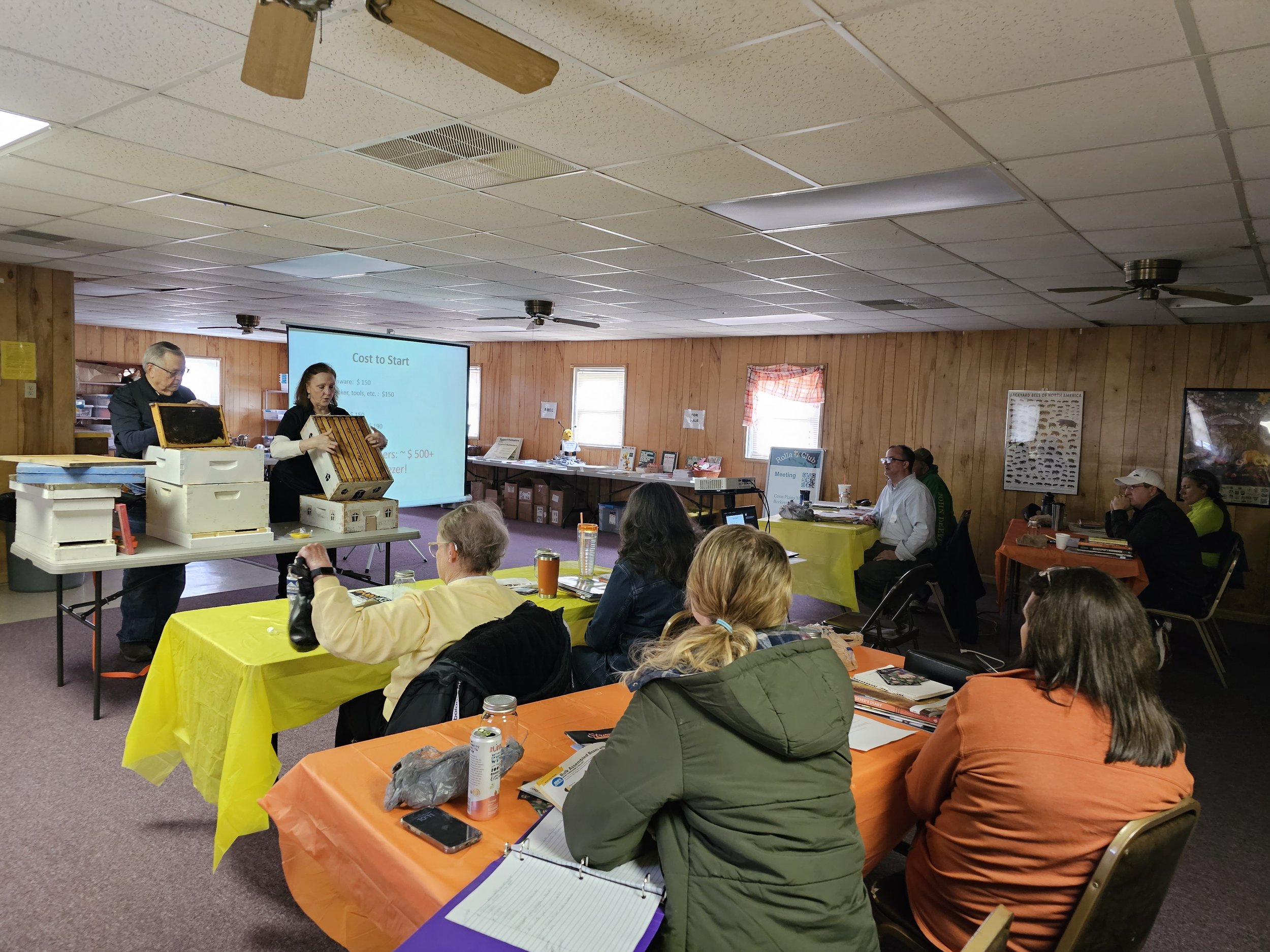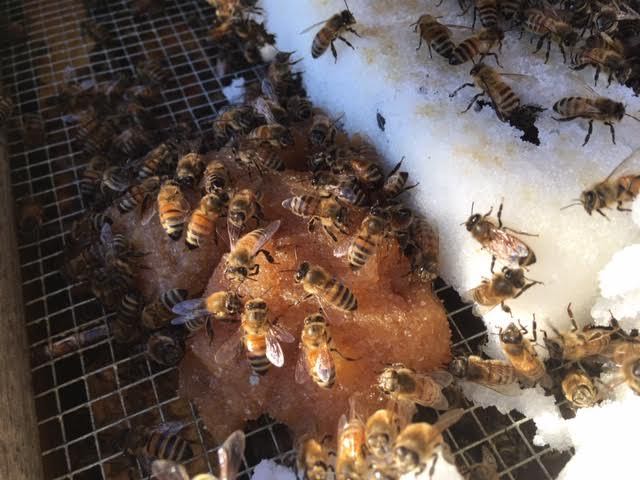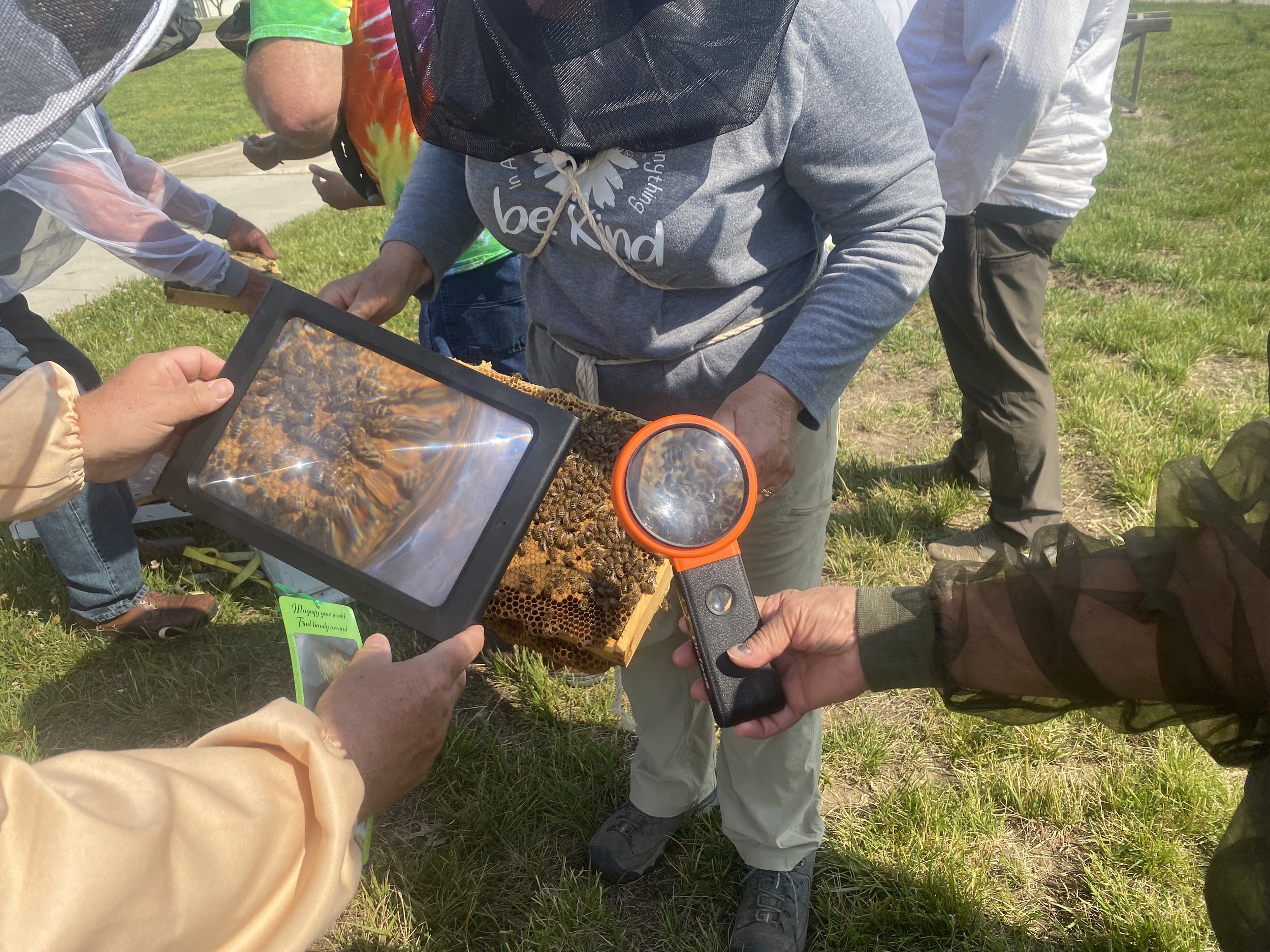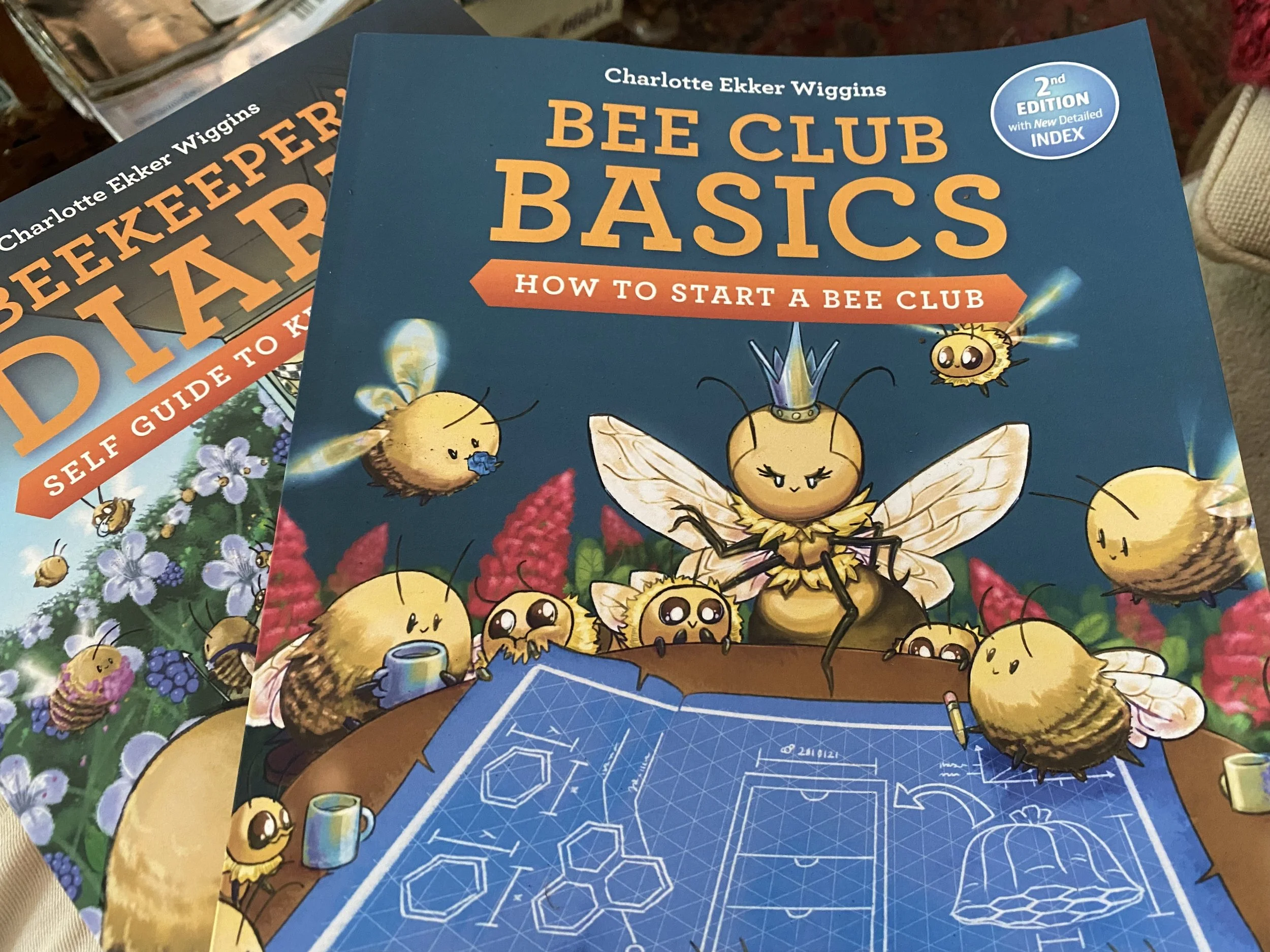Teaching Apiaries
/rolla bee club teaching apiary on private property. (charlotte ekker wiggins photo)
Teaching Apiaries
Ever wondered what it would be like to look close at bees? Ok, so maybe you haven't but some people have, including me. I was one of those people many years ago when I had that odd thought one winter why not add bees to my garden. I could set the hive at the back corner. Bees would do their thing; I would do mine and my dwarf fruit trees would give me fruit. I didn't count on falling in love or being fascinated with the life of these tiny winged creatures.
Since then, there's been increased awareness about how our food supply depends on the pollination services of both honey bees and native bees. US beekeepers have added almost a million bee colonies just in the last 5 years according to the Washington Post, making bees the fastest growing agricultural stock. Some continue to argue about the numbers but few can dispute that interest in keeping bees continues to increase.
The US now has 13 master beekeeping programs with only one offering hands on experience through open teaching apiaries like the one Rolla Bee Club hosts near my home town. The Great Plains Master Beekeeping Program, out of the University of Nebraska at Lincoln, has free online basic courses appropriate to beginning and journeyman level beekeepers. They pair online classes with in person classes as well as requisite volunteer and field hours. They also partner with beekeeping clubs and associations to support collections of bees and hives in US Midwest teaching apiaries where students can work with bees and get familiar with what they learn in classrooms and online. This is not a race to the finish line but a program designed to develop scientifically-based best management practices that require practice. Instructors are the coachers; bees are the teachers.
Once a month, weather permitting, I spend a couple of hours at our local teaching apiary as the certified master beekeeper overseeing other beekeepers teaching less experienced beekeepers. Sometimes apiary visitors are seeing bees up close for the first time. It's almost magical when someone holds a bee at the tip of their finger on their gloved hand. One can see the spark in their eye when they connect with the marvelous creature that's landed so close to their nose. That's when I know they'll be a beekeeper some day.
Beekeepers do a lot of things and one of the things they do best is share stories. A month ago we had a couple from South Africa excited to work gentle bees as opposed to the bees they have back on the African continent. We spent most of the time hearing them describe their beekeeping experiences and how they came to keep bees. We discussed differences in hive set ups and how they dealt with their more defensive tenants. Not every learning session is scripted. There is something to learn from every beekeeper.
If you're starting your beekeeping journey in the Midwest, take the opportunity to locate a nearby teaching apiary and stop by for a visit. Most teaching apiaries offer educational sessions appropriate to the season, weather permitting. If you're part of Heroes to Hives out of Michigan, a beginning beekeeping program for military veterans and their families, they also offer teaching apiaries. Check their Facebook page for available locations.
Teaching apiaries are educational sessions to help beekeepers in their educational journey, They are also teaching beekeepers how to teach other beekeepers. That's yet another reason to love beekeeping, it's an opportunity to not only keep on learning but to keep on sharing.
For more gardening, beekeeping, cooking and easy home decor tips, subscribe to Garden Notes.
Charlotte


